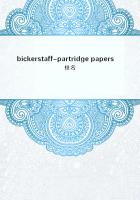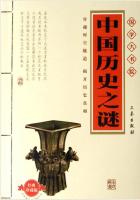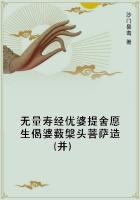It has, or had till yesterday, fewer students than the University of Toronto. To mention Oxford beside the 26,000 students of Columbia University sounds ridiculous. In point of money, the 39,000,000
dollar endowment of the University of Chicago, and the $35,000,000
one of Columbia, and the $43,000,000 of Harvard seem to leave Oxford nowhere. Yet the peculiar thing is that it is not nowhere. By some queer process of its own it seems to get there every time. It was therefore of the very greatest interest to me, as a profound scholar, to try to investigate just how this peculiar excellence of Oxford arises.
It can hardly be due to anything in the curriculum or programme of studies. Indeed, to any one accustomed to the best models of a university curriculum as it flourishes in the United States and Canada, the programme of studies is frankly quite laughable. There is less Applied Science in the place than would be found with us in a theological college. Hardly a single professor at Oxford would recognise a dynamo if he met it in broad daylight. The Oxford student learns nothing of chemistry, physics, heat, plumbing, electric wiring, gas-fitting or the use of a blow-torch. Any American college student can run a motor car, take a gasoline engine to pieces, fix a washer on a kitchen tap, mend a broken electric bell, and give an expert opinion on what has gone wrong with the furnace.
It is these things indeed which stamp him as a college man, and occasion a very pardonable pride in the minds of his parents.
But in all these things the Oxford student is the merest amateur.
This is bad enough. But after all one might say this is only the mechanical side of education. True: but one searches in vain in the Oxford curriculum for any adequate recognition of the higher and more cultured studies. Strange though it seems to us on this side of the Atlantic, there are no courses at Oxford in Housekeeping, or in Salesmanship, or in Advertising, or on Comparative Religion, or on the influence of the Press. There are no lectures whatever on Human Behaviour, on Altruism, on Egotism, or on the Play of Wild Animals. Apparently, the Oxford student does not learn these things.
This cuts him off from a great deal of the larger culture of our side of the Atlantic. "What are you studying this year?" I once asked a fourth year student at one of our great colleges. "I am electing Salesmanship and Religion," he answered. Here was a young man whose training was destined inevitably to turn him into a moral business man: either that or nothing. At Oxford Salesmanship is not taught and Religion takes the feeble form of the New Testament.
The more one looks at these things the more amazing it becomes that Oxford can produce any results at all.
The effect of the comparison is heightened by the peculiar position occupied at Oxford by the professors' lectures. In the colleges of Canada and the United States the lectures are supposed to be a really necessary and useful part of the student's training. Again and again I have heard the graduates of my own college assert that they had got as much, or nearly as much, out of the lectures at college as out of athletics or the Greek letter society or the Banjo and Mandolin Club.
In short, with us the lectures form a real part of the college life.
At Oxford it is not so. The lectures, I understand, are given and may even be taken. But they are quite worthless and are not supposed to have anything much to do with the development of the, student's mind.
"The lectures here," said a Canadian student to me, "are punk." I
appealed to another student to know if this was so. "I don't know whether I'd call them exactly punk," he answered, "but they're certainly rotten." Other judgments were that the lectures were of no importance: that nobody took them: that they don't matter: that you can take them if you like: that they do you no harm.
It appears further that the professors themselves are not keen on their lectures. If the lectures are called for they give them; if not, the professor's feelings are not hurt. He merely waits and rests his brain until in some later year the students call for his lectures. There are men at Oxford who have rested their brains this way for over thirty years: the accumulated brain power thus dammed up is said to be colossal.
I understand that the key to this mystery is found in the operations of the person called the tutor. It is from him, or rather with him, that the students learn all that they know: one and all are agreed on that. Yet it is a little odd to know just how he does it. "We go over to his rooms," said one student, "and he just lights a pipe and talks to us." "We sit round with him," said another, "and he simply smokes and goes over our exercises with us." From this and other evidence I
gather that what an Oxford tutor does is to get a little group of students together and smoke at them. Men who have been systematically smoked at for four years turn into ripe scholars. If anybody doubts this, let him go to Oxford and he can see the thing actually in operation. A well-smoked man speaks, and writes English with a grace that can be acquired in no other way.
In what was said above, I seem to have been directing criticism against the Oxford professors as such: but I have no intention of doing so. For the Oxford professor and his whole manner of being I
have nothing but a profound respect. There is indeed the greatest difference between the modern up-to-date American idea of a professor and the English type. But even with us in older days, in the bygone time when such people as Henry Wadsworth Longfellow were professors, one found the English idea; a professor was supposed to be a venerable kind of person, with snow-white whiskers reaching to his stomach. He was expected to moon around the campus oblivious of the world around him. If you nodded to him he failed to see you. Of money he knew nothing; of business, far less. He was, as his trustees were proud to say of him, "a child."















